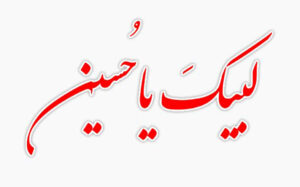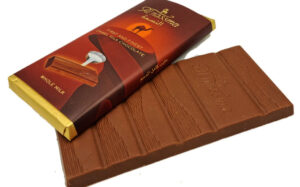Table of Contents
Introduction
Islamic Wedding Dresses, Weddings are momentous occasions, celebrated with grandeur and joy across various cultures. In the Islamic tradition, weddings hold special significance, and the attire chosen for such an event is often a reflection of both cultural heritage and religious values. Islamic wedding dresses are unique in their elegance, modesty, and the rich tapestry of cultural influences they embody. This article explores the beautiful world of Islamic wedding dresses, offering insights into their traditional elements, contemporary adaptations, and tips for brides-to-be in choosing the perfect gown for their special day.
The Significance of Modesty in Islamic Wedding Dresses
Islamic wedding dresses are designed with an emphasis on modesty, in alignment with the principles of Islamic dress code. Modesty is not just about covering the body but also about presenting oneself in a dignified and graceful manner. The dresses typically feature high necklines, long sleeves, and floor-length hems, ensuring that the bride is elegantly covered while exuding grace and beauty.
Traditional Elements of Islamic Wedding Dresses
Fabric Choices
The choice of fabric is crucial in Islamic wedding dresses. Luxurious fabrics such as silk, satin, and chiffon are commonly used. These materials not only drape beautifully but also provide a regal and sophisticated appearance. Embroidered details, lace overlays, and intricate beadwork add to the opulence of the gown.
Colors and Symbolism
While white is a popular color for wedding dresses in many cultures, Islamic wedding dresses often embrace a broader palette. Colors such as gold, emerald green, ruby red, and royal blue are favored for their richness and symbolic meanings. Each color carries its own significance, representing aspects such as prosperity, love, and joy.
Hijabs and Headpieces
A hijab, or headscarf, is an integral part of an Islamic Wedding Dresses, complementing the overall modesty of the attire. Hijabs are often elaborately decorated with embroidery, sequins, and pearls to match the dress. Additionally, headpieces like tiaras or floral crowns may be worn to enhance the bride’s regal look.
Contemporary Trends in Islamic Wedding Dresses
While traditional elements remain prominent, contemporary Islamic Wedding Dresses have evolved to incorporate modern fashion trends. Designers are increasingly blending traditional modesty with stylish cuts and innovative designs, catering to the preferences of modern brides.
Modern Silhouettes
Modern Islamic wedding dresses feature a variety of silhouettes, from classic A-line and ball gown styles to sleek mermaid and trumpet shapes. These silhouettes are designed to flatter the bride’s figure while maintaining modesty. Innovative layering techniques and the use of lightweight fabrics allow for elegant, flowing designs that move beautifully.
Minimalist Designs
In recent years, minimalist designs have gained popularity among brides seeking a chic and understated look. Simple, clean lines and minimal embellishments create a timeless elegance. These dresses often focus on the quality of the fabric and the precision of the cut, resulting in a sophisticated and refined appearance.
Customization and Personalization
Many brides opt for custom-made dresses to ensure their wedding gown is a true reflection of their personal style and cultural heritage. Customization options include choosing specific fabrics, colors, and embellishments, as well as incorporating personal symbols or motifs into the design.
Choosing the Perfect Islamic Wedding Dress
Understanding Your Personal Style
When selecting an Islamic Wedding Dresses, it’s important for brides to consider their personal style and preferences. Whether you prefer a traditional look or a modern twist, your dress should make you feel confident and beautiful. Consider trying on different styles to see what suits you best.
Researching Designers and Boutiques
Researching designers and boutiques that specialize in Islamic wedding dresses can help you find the perfect gown. Look for designers who understand the importance of modesty and have experience creating dresses that blend tradition with contemporary fashion.
Setting a Budget
Islamic Wedding Dresses can range significantly in price, so it’s essential to set a budget before you start shopping. Keep in mind that custom-made dresses and those with extensive detailing may cost more. However, investing in a high-quality dress that makes you feel amazing is worth the expense.
Considering Cultural and Religious Requirements
Make sure your wedding dress aligns with cultural and religious requirements. Discussing your preferences with family members and religious leaders can provide valuable guidance and ensure that your dress respects traditional values while reflecting your personal taste.
Accessories to Complement Islamic Wedding Dresses
Jewelry
Jewelry plays a significant role in completing the bridal look. Delicate earrings, necklaces, and bracelets that complement the dress’s design and color can add a touch of sparkle and elegance. Traditional pieces such as bangles and headpieces can also be incorporated for a more cultural touch.
Shoes
Choosing the right shoes is essential for both comfort and style. Brides often opt for closed-toe heels or flats that match the dress. Consider the length of your gown when selecting your footwear to ensure it doesn’t drag on the ground.
Veils and Capes
Veils and capes are beautiful additions to Islamic wedding dresses. They add an extra layer of elegance and can be customized with embroidery and beadwork to match the gown. Capes, in particular, have become a popular choice for brides looking for a regal and sophisticated look.
Real-Life Inspirations: Islamic Wedding Dress Trends
Celebrity Inspirations
Celebrities and public figures often set trends in wedding fashion. Look to well-known personalities for inspiration on modern yet modest bridal looks. Their choices often influence the latest designs and styles in the wedding dress industry.
Social Media and Bridal Magazines
Social media platforms and bridal magazines are excellent resources for discovering the latest trends in Islamic wedding dresses. Follow designers, bridal influencers, and wedding planners to stay updated on new styles and design ideas.
Conclusion
Islamic wedding dresses beautifully blend tradition with contemporary fashion, offering brides a range of stunning options to choose from. Whether you prefer a classic, heavily embroidered gown or a sleek, modern design, the key is to find a dress that reflects your personal style while honoring the principles of modesty. By understanding the traditional elements and exploring modern trends, you can find the perfect gown that makes you feel like a queen on your special day.
FAQs
1. What makes an Islamic Wedding Dresses different from other wedding dresses? Islamic wedding dresses emphasize modesty, often featuring high necklines, long sleeves, and floor-length hems. They blend cultural heritage with religious values, resulting in elegant and graceful designs.
2. Can Islamic wedding dresses be customized? Yes, many brides opt for custom-made dresses to ensure their gown reflects their personal style and cultural heritage. Customization options include choosing fabrics, colors, and embellishments, as well as incorporating personal symbols or motifs.
3. What are some popular colors for Islamic wedding dresses? While white is popular, many Islamic wedding dresses feature rich colors such as gold, emerald green, ruby red, and royal blue. These colors carry symbolic meanings related to prosperity, love, and joy.
4. Are there modern trends in Islamic wedding dresses? Yes, modern trends include minimalist designs, innovative silhouettes, and the use of lightweight fabrics. Contemporary Islamic wedding dresses blend traditional modesty with stylish cuts and fashionable details.
5. How can I find the perfect Islamic wedding dress? Start by understanding your personal style, researching designers and boutiques, setting a budget, and considering cultural and religious requirements. Trying on different styles can help you find a dress that makes you feel confident and beautiful.





